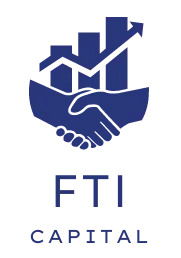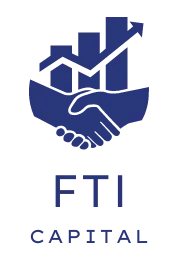Need Help? 602-560-6965
Loan Amount
50-90% Value
Term
Until Invoices are Paid
Time to Funding
As few as 48 Hours
Interest Rate
Est. 3% plus weekly
Loan Amount
50-90% Value
Term
Until Invoices are Paid
Time to Funding
As few as 48 Hours
Interest Rate
Est. 3% plus weekly

Invoice Financing
A loan against (Asset Based Loan) or purchase of (Invoice Factoring) accounts receivables. Invoice financing allows you to access quick cash against current unpaid invoices.
Examples:
Immediate capital for purchase of new equipment to meet expansion demands
Taking advantage of the opportunity to purchase inventory at a temporary discount
Paying current bills while awaiting payment from your customers

Invoice Financing
A loan against (Asset Based Loan) or purchase of (Invoice Factoring) accounts receivables. Invoice financing allows you to access quick cash against current unpaid invoices.
Examples:
Immediate capital for purchase of new equipment to meet expansion demands
Taking advantage of the opportunity to purchase inventory at a temporary discount
Paying current bills while awaiting payment from your customers
Invoice Financing in Detail
Invoice Financing allows businesses that have outstanding invoices from customers with good credit to use those accounts receivable to access relatively quick cash. There are two options available. An Asset Based Loan allows you to borrow money against your current invoices, whereas Invoice Factoring is a sale of your invoices to a third party. These two methods have significant differences. Most entities that will purchase invoices (Invoice Factoring) prefer to deal with companies that have $3 million or more in monthly revenues and borrowing against invoices (Asset Based Loan) is usually only available to businesses needing $1 million or more. While there are companies that will deal in smaller amounts, neither solution is likely to be viable for very small businesses.
What you'll need to Qualify
. Minimum Time in Operation: 3 months
. Minimum Revenue: $50,000 annually
Invoice Factoring
The key to Invoice Factoring is to understand that invoices are, from an accounting standpoint, an asset. Any asset can be sold for all or a portion of its value. Because it's a sale of an asset, rather than a loan, it can be a much easier and quicker way of accessing cash for your business.
In the case of Invoice Factoring, you sell your invoices to a third party who pays you cash for the value of those invoices, assuming that the customers for those invoices have good credit and a history of paying their bills. In a typical invoice factoring deal, you would receive 80% of the value of the invoices up front, often as quickly as one day from the request of funds, and the remaining 20%, minus the factoring fee, when the invoice is paid.
Once you've established a relationship with a factoring purchaser, Invoice Factoring works very much like a line of credit, with the amount of funds available to you being tied to the current total of your verifiable accounts receivable. Factoring can be an excellent financing option for companies where operating needs occur out of sync with customer payments.
Factoring: Advantages & Costs
A major benefit of Invoice Factoring is the availability to small businesses that have no established credit. Because you're selling accounts receivables, the credit score of your customers is taken in to account but yours is irrelevant. You can access cash very quickly, which may allow businesses with regular monthly operating expenses to offer Net 30 and Net 60 day terms to customers, and Invoice Factoring is easier to get than business loans. Finally, setting up Invoice Factoring is relatively quick compared to other kinds of business financing.
The typical interest rate for Invoice Factoring will range between 1.5 and 3.5 percent per month, depending upon the size and credit score of the company paying the invoice.
Asset Based Loan
Not limited to just invoices, an Asset Based Loan allows your company to borrow against accounts receivable but may also include fixed assets such as inventory and machinery. Asset Based Loans can be viewed as a halfway point between a bank Line of Credit and Factoring. In cases where the ABL is leveraged against invoices, it works much like a line of credit. You may borrow up to 80% against eligible receivables, paying back the borrowed amounts plus interest when the invoices are paid.
The amount you can borrow is determined by a borrowing certificate, which details your assets such as outstanding receivables (minus ineligible assets) and applies the resulting amount to your credit limit.
Asset Based Loan: Advantages
Because the loan is leveraged against your assets, the current history or even credit rating of your company may be irrelevant. This can be an excellent option for growing businesses that have not yet established a credit history but that have established good cash flow. In addition, you'll have the flexibility to access cash in relation to your current accounts receivable which can enable much more rapid growth of your company than waiting for customers to pay. Finally, Asset Based Loans may be cheaper than Factoring, as the interest rate is usually based upon the prime rate.
Asset Based Loan: Advantages
Because the loan is leveraged against your assets, the current history or even credit rating of your company may be irrelevant. This can be an excellent option for growing businesses that have not yet established a credit history but that have established good cash flow. In addition, you'll have the flexibility to access cash in relation to your current accounts receivable which can enable much more rapid growth of your company than waiting for customers to pay. Finally, Asset Based Loans may be cheaper than Factoring, as the interest rate is usually based upon the prime rate.
If you’re confused or need clarification about the qualifying requirements for the SBA 7(a) Loan Program, please contact us. We’ll be happy to help.
Invoice Financing in Detail
Invoice Financing allows businesses that have outstanding invoices from customers with good credit to use those accounts receivable to access relatively quick cash. There are two options available. An Asset Based Loan allows you to borrow money against your current invoices, whereas Invoice Factoring is a sale of your invoices to a third party. These two methods have significant differences. Most entities that will purchase invoices (Invoice Factoring) prefer to deal with companies that have $3 million or more in monthly revenues and borrowing against invoices (Asset Based Loan) is usually only available to businesses needing $1 million or more. While there are companies that will deal in smaller amounts, neither solution is likely to be viable for very small businesses.
What you'll need to Qualify
. Minimum Time in Operation: 3 months
. Minimum Revenue: $50,000 annually
Invoice Factoring
The key to Invoice Factoring is to understand that invoices are, from an accounting standpoint, an asset. Any asset can be sold for all or a portion of its value. Because it's a sale of an asset, rather than a loan, it can be a much easier and quicker way of accessing cash for your business.
In the case of Invoice Factoring, you sell your invoices to a third party who pays you cash for the value of those invoices, assuming that the customers for those invoices have good credit and a history of paying their bills. In a typical invoice factoring deal, you would receive 80% of the value of the invoices up front, often as quickly as one day from the request of funds, and the remaining 20%, minus the factoring fee, when the invoice is paid.
Once you've established a relationship with a factoring purchaser, Invoice Factoring works very much like a line of credit, with the amount of funds available to you being tied to the current total of your verifiable accounts receivable. Factoring can be an excellent financing option for companies where operating needs occur out of sync with customer payments.
Factoring: Advantages & Costs
A major benefit of Invoice Factoring is the availability to small businesses that have no established credit. Because you're selling accounts receivables, the credit score of your customers is taken in to account but yours is irrelevant. You can access cash very quickly, which may allow businesses with regular monthly operating expenses to offer Net 30 and Net 60 day terms to customers, and Invoice Factoring is easier to get than business loans. Finally, setting up Invoice Factoring is relatively quick compared to other kinds of business financing.
The typical interest rate for Invoice Factoring will range between 1.5 and 3.5 percent per month, depending upon the size and credit score of the company paying the invoice.
Asset Based Loan
Not limited to just invoices, an Asset Based Loan allows your company to borrow against accounts receivable but may also include fixed assets such as inventory and machinery. Asset Based Loans can be viewed as a halfway point between a bank Line of Credit and Factoring. In cases where the ABL is leveraged against invoices, it works much like a line of credit. You may borrow up to 80% against eligible receivables, paying back the borrowed amounts plus interest when the invoices are paid.
The amount you can borrow is determined by a borrowing certificate, which details your assets such as outstanding receivables (minus ineligible assets) and applies the resulting amount to your credit limit.
Asset Based Loan: Advantages
Because the loan is leveraged against your assets, the current history or even credit rating of your company may be irrelevant. This can be an excellent option for growing businesses that have not yet established a credit history but that have established good cash flow. In addition, you'll have the flexibility to access cash in relation to your current accounts receivable which can enable much more rapid growth of your company than waiting for customers to pay. Finally, Asset Based Loans may be cheaper than Factoring, as the interest rate is usually based upon the prime rate.
Asset Based Loan: Advantages
Because the loan is leveraged against your assets, the current history or even credit rating of your company may be irrelevant. This can be an excellent option for growing businesses that have not yet established a credit history but that have established good cash flow. In addition, you'll have the flexibility to access cash in relation to your current accounts receivable which can enable much more rapid growth of your company than waiting for customers to pay. Finally, Asset Based Loans may be cheaper than Factoring, as the interest rate is usually based upon the prime rate.
If you’re confused or need clarification about the qualifying requirements for the SBA 7(a) Loan Program, please contact us. We’ll be happy to help.
Apply for a business loan right now!
Go forward to secure the capital your company need.
Apply for a business loan right now!
Go forward to secure the capital your company need.

Mailing Address:
3104 E Camelback Rd
Unit #7836
Phoenix, AZ 85016
Main Office:
3104 E Camelback Rd
Unit #7836
Phoenix, AZ 85016
© Copyrights 2024 FtiCapital. All Rights Reserved.
Designed By Vik_digitalz
